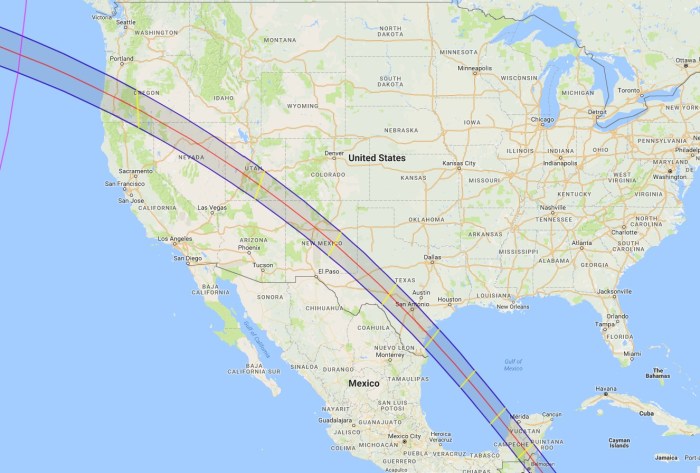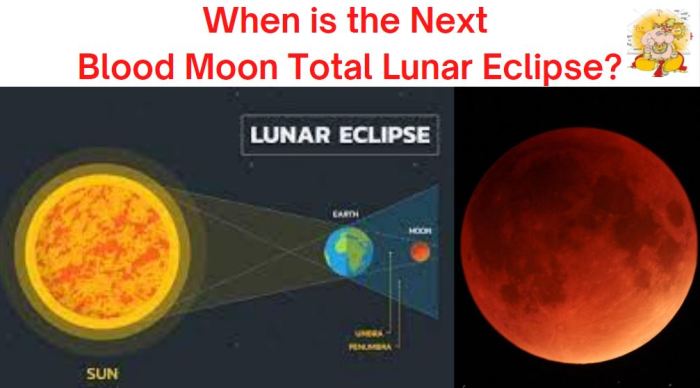NJ Total Eclipse 2024: Nj Total Eclipse 2025

The total solar eclipse of April 8, 2024, will be a spectacular celestial event visible across parts of North America, including a significant portion of New Jersey. This event offers a unique opportunity for residents and visitors to witness the awe-inspiring phenomenon of totality, where the moon completely blocks the sun’s disk, revealing the sun’s corona.
Path of Totality Across New Jersey
The path of totality, the area where the total eclipse will be visible, will traverse a relatively narrow band across northern New Jersey. The eclipse will begin as a partial eclipse, gradually increasing in intensity as the moon moves in front of the sun. As the moon completely obscures the sun, totality will be experienced, followed by the gradual return of the sun’s light as the moon continues its orbit. The precise path of totality will need to be determined closer to the date using updated astronomical calculations. However, cities and towns in the northern part of the state are expected to have the best views.
Timeline of Eclipse Events in New Jersey
The timing of the eclipse will vary slightly depending on the specific location within New Jersey. However, a general timeline can be provided as a guide. The partial eclipse will begin approximately 2:00 PM EDT, with totality commencing around 3:30 PM EDT and lasting for approximately 4 minutes. Maximum eclipse, the point at which the sun is most completely obscured, will occur shortly after the start of totality. The partial eclipse will then continue until approximately 5:00 PM EDT. These times are approximate and should be verified using precise eclipse prediction tools closer to the event date. It’s crucial to use accurate, location-specific prediction software or resources for precise timing.
Astronomical Phenomena Involved in a Total Solar Eclipse
A total solar eclipse occurs when the moon passes directly between the sun and the Earth, casting a shadow on our planet. The moon’s apparent size in the sky is almost exactly the same as the sun’s, creating a perfect alignment. This alignment allows the moon to completely block the sun’s bright disk, revealing the sun’s faint outer atmosphere, the corona, which is normally invisible to the naked eye. The darkness during totality is dramatic and can cause a noticeable drop in temperature. The appearance of the corona, with its intricate streamers and loops of plasma, is a breathtaking sight. This alignment is a rare and remarkable event in celestial mechanics.
Duration of Totality at Different Locations in New Jersey
The duration of totality will vary slightly across New Jersey due to the curvature of the Earth and the moon’s orbit. Locations further north within the path of totality will experience slightly longer periods of totality. The following table provides estimated durations for a few example locations; precise data should be sought from specialized eclipse prediction websites nearer the date. Cloud cover predictions are notoriously difficult far in advance and are therefore presented as “uncertain” below.
| Location | Time of Totality (EDT) | Duration of Totality | Viewing Conditions (Expected Cloud Cover) |
|---|---|---|---|
| Newton | 3:35 PM – 3:39 PM | Approximately 4 minutes | Uncertain |
| Sussex | 3:36 PM – 3:40 PM | Approximately 4 minutes | Uncertain |
| Sparta | 3:37 PM – 3:41 PM | Approximately 4 minutes | Uncertain |
| Hackettstown | 3:38 PM – 3:42 PM | Approximately 4 minutes | Uncertain |
Best Viewing Locations in NJ

Planning to witness the 2025 total solar eclipse in New Jersey? Securing a prime viewing spot is crucial for an unforgettable experience. Several locations across the state offer excellent opportunities, each with its own advantages and considerations. The following details will help you choose the best location based on your preferences and priorities.
Top Five Eclipse Viewing Locations in New Jersey
Selecting the ideal viewing location requires careful consideration of several factors: accessibility, anticipated crowd size, the presence of obstructions, and available amenities. Below are five locations offering optimal viewing conditions, balancing these factors for a variety of viewer types.
- Liberty State Park, Jersey City: This urban park offers stunning views of the New York City skyline, providing a unique backdrop to the eclipse. Accessibility is excellent via public transportation and ample parking is available, though it might fill up quickly. Restrooms and concessions are readily available within the park. While crowds are expected to be significant, the vastness of the park should offer ample space for comfortable viewing. Ideal for families due to amenities and the interesting urban setting, but photographers might find some challenges due to potential light pollution and building obstructions. Astronomers might find it less ideal due to light pollution.
- Delaware Water Gap National Recreation Area: Located in northwestern New Jersey, this area offers expansive, natural views with minimal light pollution. Accessibility is good, with several access points along the Delaware River. Parking is available at various points, but it’s advisable to arrive early. Restroom facilities are available at certain locations within the park, but they might be limited. Crowds are expected, but the vast area helps to mitigate density. This location is excellent for astronomers and photographers seeking dark skies and stunning natural landscapes. Families will enjoy the scenic beauty, but should be prepared for more rustic conditions.
- High Point State Park: The highest point in New Jersey, High Point offers panoramic views and relatively minimal light pollution. Accessibility is good by car, with a large parking area available, but it will likely fill quickly. Restrooms and a visitor center are present. Crowds are anticipated, but the vastness of the park will help distribute viewers. The high elevation offers unobstructed views, making it a great choice for photographers and astronomers. Families will appreciate the beautiful scenery and the visitor center amenities.
- Princeton University Campus: Princeton’s sprawling campus provides numerous open spaces with good views of the eclipse. Accessibility is excellent, with ample parking and public transportation options. Restrooms and various campus facilities are readily available. While crowds are anticipated, the large campus offers several viewing locations to spread out. This location is well-suited for families due to its accessibility and amenities. Photographers may find interesting architectural backdrops, and astronomers might benefit from the relatively open spaces.
- Sandy Hook Bay: Offering coastal views, Sandy Hook offers a unique perspective on the eclipse. Accessibility is good via car and ferry. Parking can be limited, so arriving early is essential. Restrooms and concessions are available at the beach. While crowds are expected, the expansive beach should provide enough space. The location is suitable for families enjoying the beach environment. Photographers will appreciate the coastal scenery, and astronomers should be aware of potential obstructions.
Safety Precautions for Eclipse Viewing
Witnessing a total solar eclipse is a breathtaking experience, but protecting your eyesight is paramount. Looking directly at the sun, even during a partial eclipse, can cause serious and permanent eye damage, including solar retinopathy, which can lead to vision loss. Never underestimate the sun’s power; even a brief glance can have lasting consequences. This section details crucial safety measures to ensure you enjoy the celestial event without risking your vision.
The Dangers of Unprotected Solar Viewing
Directly observing the sun without proper eye protection, even for a short time, can inflict severe damage to the retina, the light-sensitive tissue at the back of your eye. The sun’s intense radiation can burn the retina, leading to blurry vision, blind spots, or even complete vision loss. Unlike other burns, retinal damage often occurs without immediate pain, making it even more dangerous. The cumulative effect of looking at the sun during an eclipse, even through seemingly harmless filters like sunglasses, is significant and can result in irreversible damage. The intensity of the sun’s radiation during an eclipse can be especially harmful because the bright light is concentrated in a smaller area.
Safe Solar Viewing Glasses and Filters
Only specialized solar viewing glasses or filters certified to meet the ISO 12312-2 international safety standard should be used for direct solar observation. These glasses are designed to significantly reduce the sun’s intensity, allowing you to safely view the eclipse. Avoid homemade filters or ordinary sunglasses, as they do not offer sufficient protection and can actually worsen eye damage. Reputable manufacturers of solar viewing glasses will clearly label their products with the ISO 12312-2 standard. Some filters, such as those used in welding helmets (shade number 14 or higher), also provide adequate protection. Always inspect your glasses before use; any scratches or damage render them unsafe.
Safe Viewing Practices Infographic, Nj Total Eclipse 2025
The infographic would be a simple, visually appealing design. The top half would depict a pair of hands holding up a pair of ISO-certified solar viewing glasses correctly positioned over the eyes, with a bright sun partially eclipsed in the background. The text overlay would clearly state: “Safe Eclipse Viewing: Always Use Certified Solar Glasses.”
The bottom half would showcase three unsafe methods side-by-side, each with a prominent red “X” overlay and a brief description. The first would show an image of someone looking directly at the sun with no protection, the text stating: “Direct Viewing: Extremely Dangerous.” The second would show a person looking at the sun through regular sunglasses, with the text: “Regular Sunglasses: Insufficient Protection.” The third would depict someone using a homemade filter, with the text: “Homemade Filters: Risky and Ineffective.”
Below these images, a concise list of safety tips would be included: 1) Always use ISO 12312-2 certified solar glasses. 2) Never look at the sun directly without proper eye protection. 3) Supervise children carefully during the eclipse. 4) Dispose of damaged solar glasses appropriately. The overall color scheme would be bright but not harsh, with a clear and easy-to-understand layout. The infographic’s purpose is to visually communicate the importance of safe viewing practices and the severe risks associated with unsafe methods.
Nj Total Eclipse 2025 – New Jersey residents eagerly anticipate the 2025 total eclipse, a celestial event that will undoubtedly draw many visitors. To understand the full scope of this astronomical phenomenon and determine optimal viewing locations within the state, it’s helpful to consult a detailed map of the Path Of Total Solar Eclipse 2025. This resource will allow you to plan your viewing experience for the New Jersey total eclipse effectively.
New Jersey residents eagerly anticipate the 2025 total eclipse, a celestial event promising breathtaking views. To get a sense of what to expect, you might want to check out stunning images from past eclipses available at Total Eclipse Pictures 2025 , which offers a preview of the awe-inspiring spectacle. Planning your viewing spot in NJ for the 2025 eclipse will be key to a memorable experience.
New Jersey residents eagerly anticipate the 2025 total solar eclipse, a celestial event promising breathtaking views. For those seeking alternative viewing locations with potentially clearer skies, consider checking out the detailed information on the North Carolina eclipse experience at Total Eclipse 2025 Nc. Comparing locations will help New Jersey residents make informed decisions about where to best witness this rare astronomical phenomenon.
Planning for the New Jersey total eclipse in 2025 is well underway, with many enthusiasts already securing viewing spots. However, for those seeking a potentially less crowded experience, consider the options further north; for example, you might check out the viewing prospects in Vermont, as detailed on this informative site: Vermont Total Eclipse 2025. Ultimately, the best location for viewing the eclipse will depend on individual preferences, but New Jersey offers a unique perspective on this celestial event.
New Jersey residents eagerly anticipate the 2025 total solar eclipse, a celestial event promising breathtaking views. To best prepare for this spectacular occurrence, knowing the precise timing is crucial; you can find the exact Total Eclipse 2025 Start Time online. This will allow you to secure the optimal viewing location and ensure you don’t miss a second of the New Jersey eclipse experience.